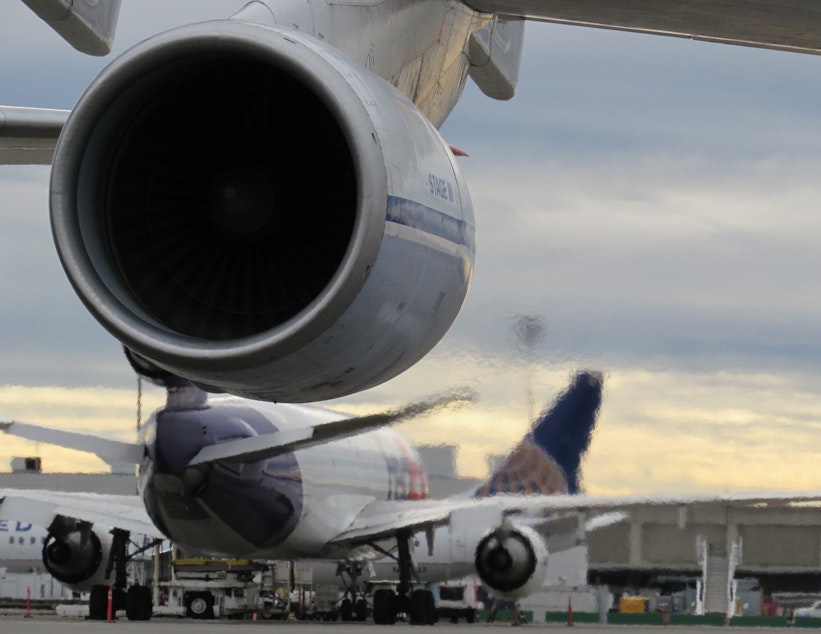Airplanes Have To Burn Less Fuel … 12 Years From Now

The world's first regulations of carbon emissions from airplanes were announced Monday, and Boeing says it's on board.
TRANSCRIPT
The new regulations from a UN aviation panel (The International Civil Aviation Organization) aim to protect the global climate by requiring jets to burn less fuel.
So far, airplanes have been a small part of the climate problem, but their role is growing fast.
Julie Felgar does environmental strategy at Boeing.
Sponsored
Felgar: "What we anticipate happening in the market in the next 20 years is really a doubling of the worldwide fleet, and what we as Boeing and we as an industry don't want to see is a doubling of emissions over that time."
Felgar says the company has been improving the fuel efficiency of its planes without being regulated. She says the new rules from the United Nations aviation panel will push the company to do more.
Felgar calls the new standards ambitious but achievable.
Felgar: "Improving fuel efficiency is in the DNA of our company going forward."
But air travel is expanding so fast that aviation emissions are growing quickly, too.
Sponsored
Environmental groups say the new standards are too weak to turn that trend around. The new rules won't take full effect until the year 2028, and they only cover new planes.
Pardee: "And that is a sad state of affairs. It's actually quite shocking."
Vera Pardee is with the Center for Biological Diversity.
Pardee: "Existing planes, the ones we're flying every day, they are not even affected by this standard at all."
Both sides will be lobbying the Obama administration as it works on the first federal regulations of airplanes' climate impact in the coming year.

